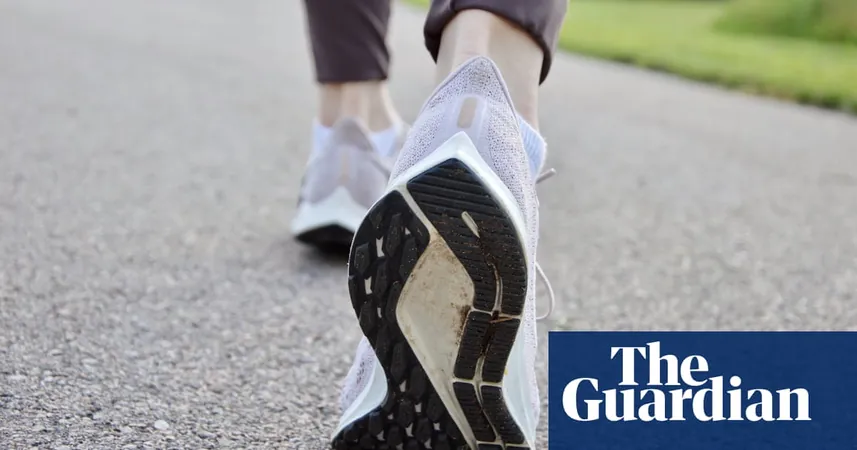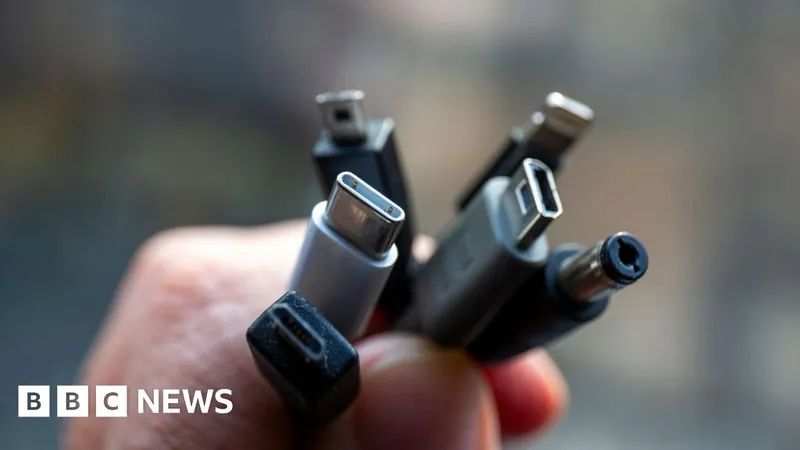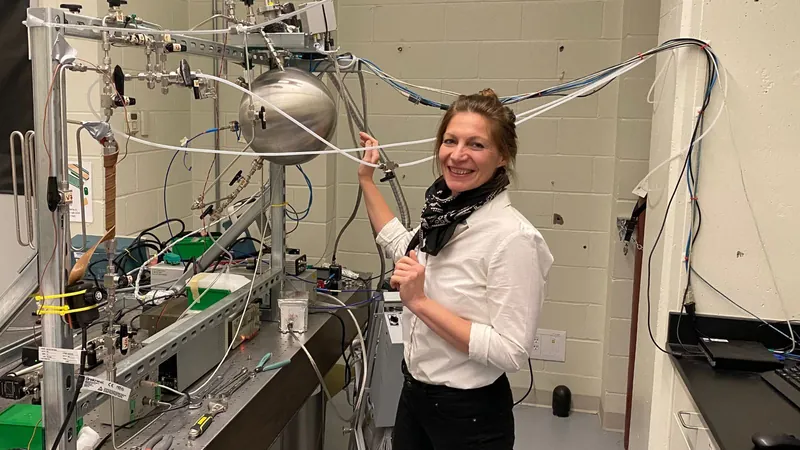
Unlock More Calories: Why Short Walks with Breaks Could Be Your Secret Weapon!
2024-10-15
Author: Emily
Unlock More Calories: Why Short Walks with Breaks Could Be Your Secret Weapon!
Are you looking to shed some pounds while enjoying your strolls? Scientists have a surprising revelation that might just change the way you walk! According to new research, taking short breaks during your walk can actually help you burn more calories compared to maintaining a steady pace.
This innovative advice comes from a comprehensive study involving volunteers who underwent rigorous testing in a laboratory setting. The researchers aimed to evaluate the oxygen consumption and energy expenditure associated with brief walks versus longer, uninterrupted sessions. The results were astounding: participants who engaged in walking or stair-climbing in short bursts of 10 to 30 seconds required a staggering 20 to 60% more oxygen—hence burning more calories—compared to those who walked the same distance in one continuous go.
Francesco Luciano, a researcher from the University of Milan, explained the phenomenon: “When we walk for shorter bouts, we use more energy and consume more oxygen to cover the same distance. It’s like a car that guzzles fuel during the first few kilometers but runs smoother on the highway,” he noted.
The researchers delved deeper into the science behind this finding after noticing that previous energy consumption estimates derived from individuals exercising at a metabolic steady state—a condition where heart rate and energy levels stabilize. To explore this new approach, they enlisted 10 healthy volunteers to exercise on treadmills and stair climbers at varying speeds, with bouts lasting from mere seconds to several minutes.
What they discovered was that the initial stages of walking required significant energy costs to warm up the body and get moving. “When we begin walking, we incur fixed costs at the start of our activity. It’s comparable to the fuel a car needs to start its engine,” Luciano said. Essentially, these findings demonstrate that the energy demands at the outset are proportionally greater during shorter walking sessions.
Interestingly, measurements revealed that efficiency improves as individuals continue to walk, allowing them to convert oxygen into movement more effectively. This research reinforces the numerous health benefits of taking short, brisk walks or tackling stairs—especially for those who lead a sedentary lifestyle.
But it doesn’t stop there! This groundbreaking study also opens new avenues for designing rehabilitation programs. By recognizing that not everyone can engage in prolonged walking sessions—such as the elderly or those with mobility issues—we can rethink exercise routines to be more inclusive. Short bursts of activity, often referred to as "exercise snacks," can be tailored to help increase physical activity among individuals struggling with obesity or recovery from strokes.
Published in the esteemed *Proceedings of the Royal Society B*, this study highlights the necessity of a paradigm shift in fitness advice. While many have focused on sustained exertion over minutes, this research equips us with the tools to incorporate more accessible forms of exercise into the daily lives of those who need it most.
So why not give it a try? Next time you're out for a walk, consider breaking it up into short bursts with some pauses in between! Not only can you enjoy the benefits of increased calorie burn, but you could also foster a more engaging and inclusive walking routine. Remember, every step counts—especially the short, energized ones!









 Brasil (PT)
Brasil (PT)
 Canada (EN)
Canada (EN)
 Chile (ES)
Chile (ES)
 España (ES)
España (ES)
 France (FR)
France (FR)
 Hong Kong (EN)
Hong Kong (EN)
 Italia (IT)
Italia (IT)
 日本 (JA)
日本 (JA)
 Magyarország (HU)
Magyarország (HU)
 Norge (NO)
Norge (NO)
 Polska (PL)
Polska (PL)
 Schweiz (DE)
Schweiz (DE)
 Singapore (EN)
Singapore (EN)
 Sverige (SV)
Sverige (SV)
 Suomi (FI)
Suomi (FI)
 Türkiye (TR)
Türkiye (TR)